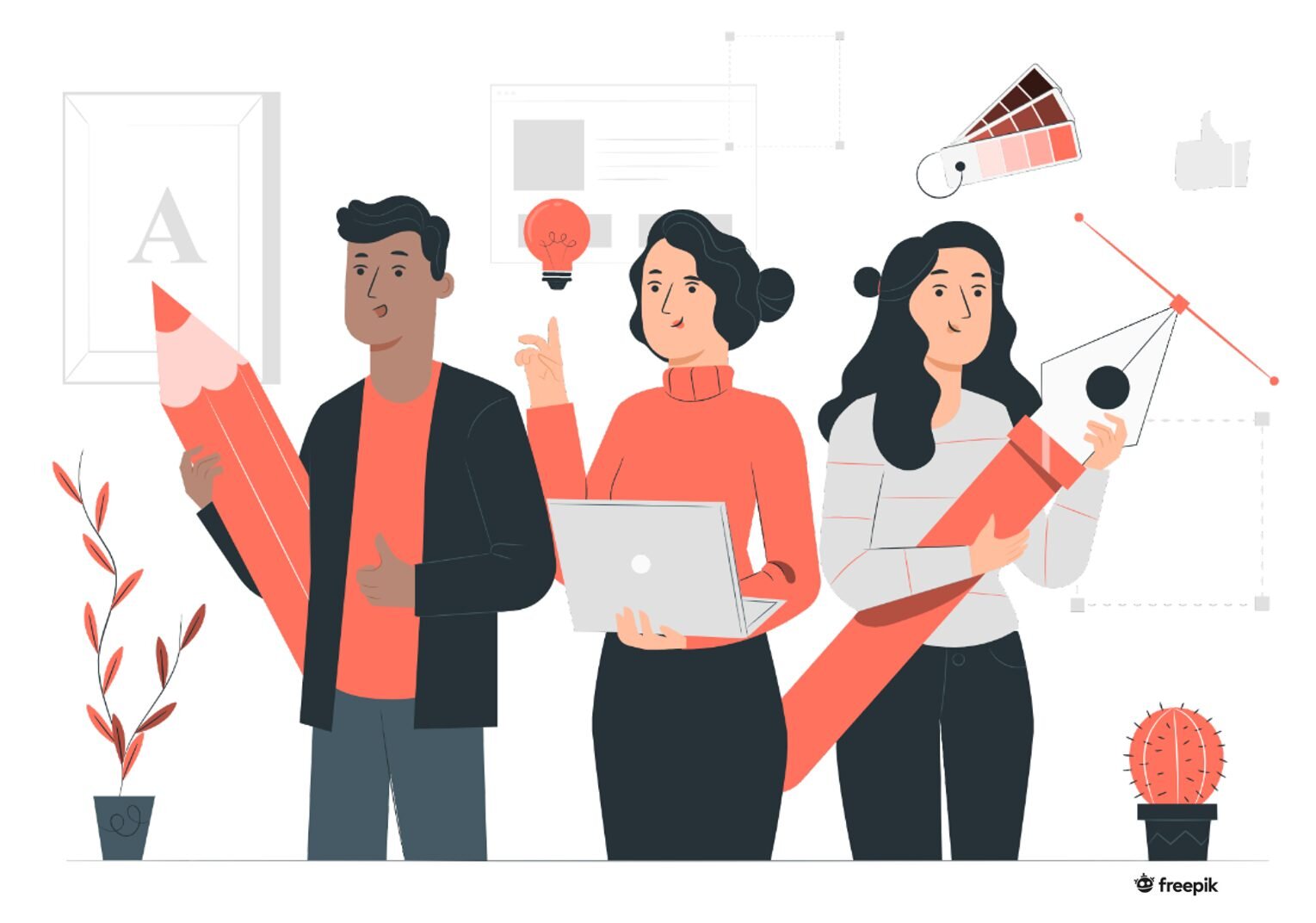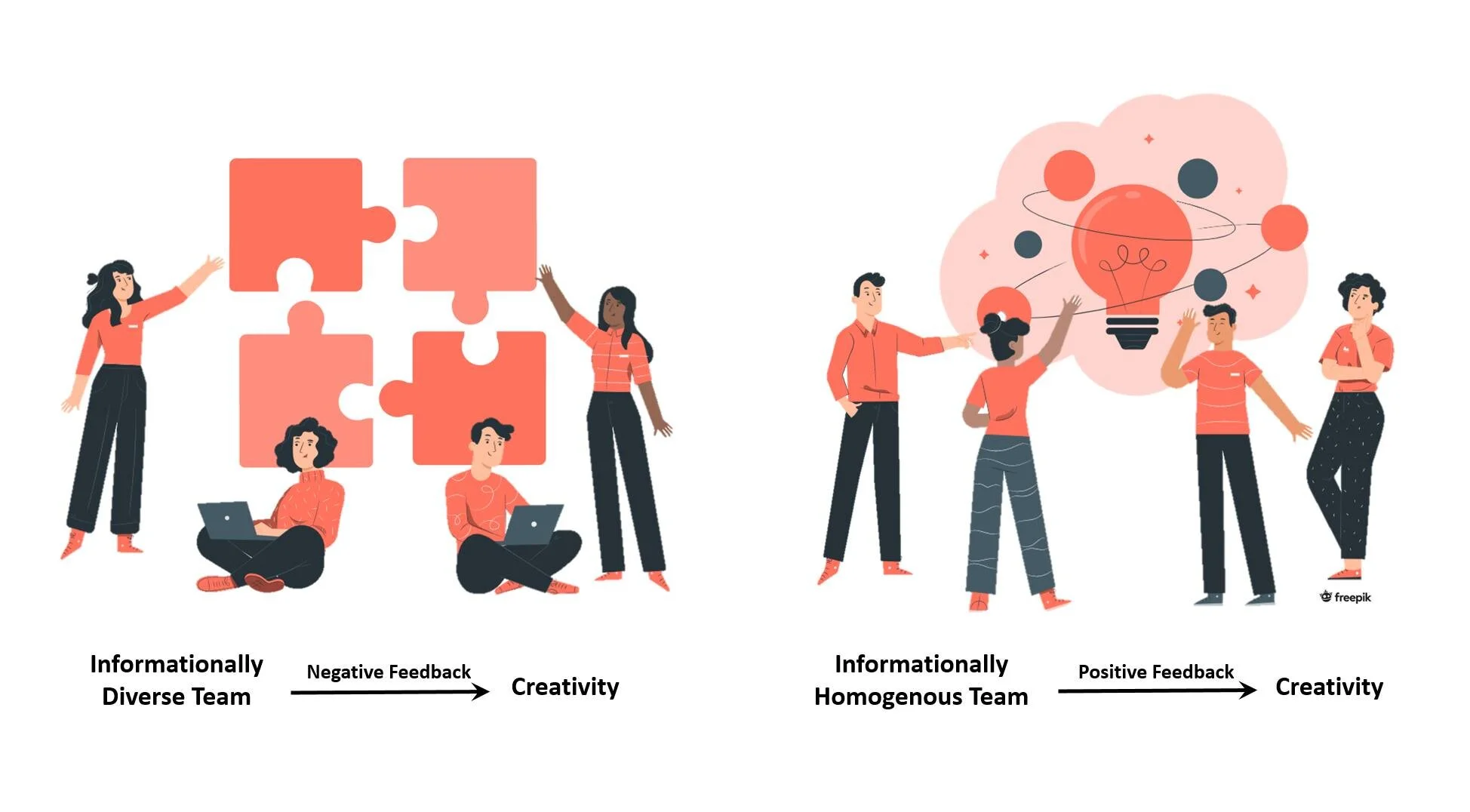Digest 18. Should you tell your team when they are - or aren't - being creative? The answer is, it depends...
Creativity, as a team’s product, has long been seen as a competitive advantage factor for modern companies. It seems to be the secret ingredient that ensures the success of new products or new services associated to products. One may rightly wonder whether team creativity can be promoted and reinforced using feedback, especially since feedback about group performance is helpful in reducing knowledge hiding among colleagues (see Digest 17). Teams are comprised of individuals holding distinct characteristics, perspectives and, particularly in multi-disciplinary teams, different information; therefore, to understand the impact of feedback sign on team creativity we need to consider the dynamics within teams and, specifically, how team members process information interdependently. In order to promote team creativity using feedback, it is important to know first of all whether providing positive or negative feedback about teams’ creativity level is more effective.
How does positive or negative feedback influence creativity in teams?
To answer this question, Hoever, Zhou, and van Knippenberg (2018) focused on team members’ information resources and how diverse these resources were. Typically, informational diversity stems from different functional backgrounds (by which members have different subject expertise) and from different job positions in organizations, that confronts members with informational asymmetry with regard to internal matters. The authors conducted an experiment with 234 students from a Dutch university by splitting students in four groups who either had diverse or homogenous information and who received either positive or negative feedback. They then measured the effect of these four conditions on team creativity.
The results showed that creativity is enhanced by negative feedback in teams characterized by high information diversity while it is triggered by positive feedback in teams with little information diversity (i.e., in informationally homogenous teams). Two separate information processing mechanisms can explain such apparently divergent result. In teams with informational diversity, negative feedback stimulates the mechanism of information elaboration, that is it encourages members to share their information. Through explicitly and intentionally sharing each members’ task-relevant knowledge and combining them creativity is achieved. In informationally homogenous teams, positive feedback prompts generative processing, meaning that members use their common information base flexibly, brainstorm, inspire new insights and divergent ideas, and all this leads to creativity.
Organizational implications
To promote team creativity, the following recommendations on feedback are provided to managers and team leaders:
When giving team feedback, carefully consider the nature of your team.
If your team is informationally diverse, in addition to positive feedback, provide them with negative feedback pointing at improvement areas. This can stimulate them to further explore and combine team members’ informational resources, which can in turn increase creativity. In situations which require to offer just positive feedback, encourage team members to share and put together their information (for tips on reducing knowledge hiding in teams see Digest 17) and form a shared knowledge base. This will result in generative processing.
If your team is informationally homogeneous, provide positive feedback stressing on team’s creativity. If it is necessary to give negative feedback to an informationally homogenous team, complement it with information on positive achievements and with novel information. The latter will equip team members with resources that would inspire them to get involved in the process of information elaboration.
——
Reference: Hoever, I. J., Zhou, J., & van Knippenberg, D. (2018). Different strokes for different teams: The contingent effects of positive and negative feedback on the creativity of informationally homogeneous and diverse teams. Academy of Management Journal, 61(6), 2159–2181. https://doi.org/10.5465/amj.2016.0642

